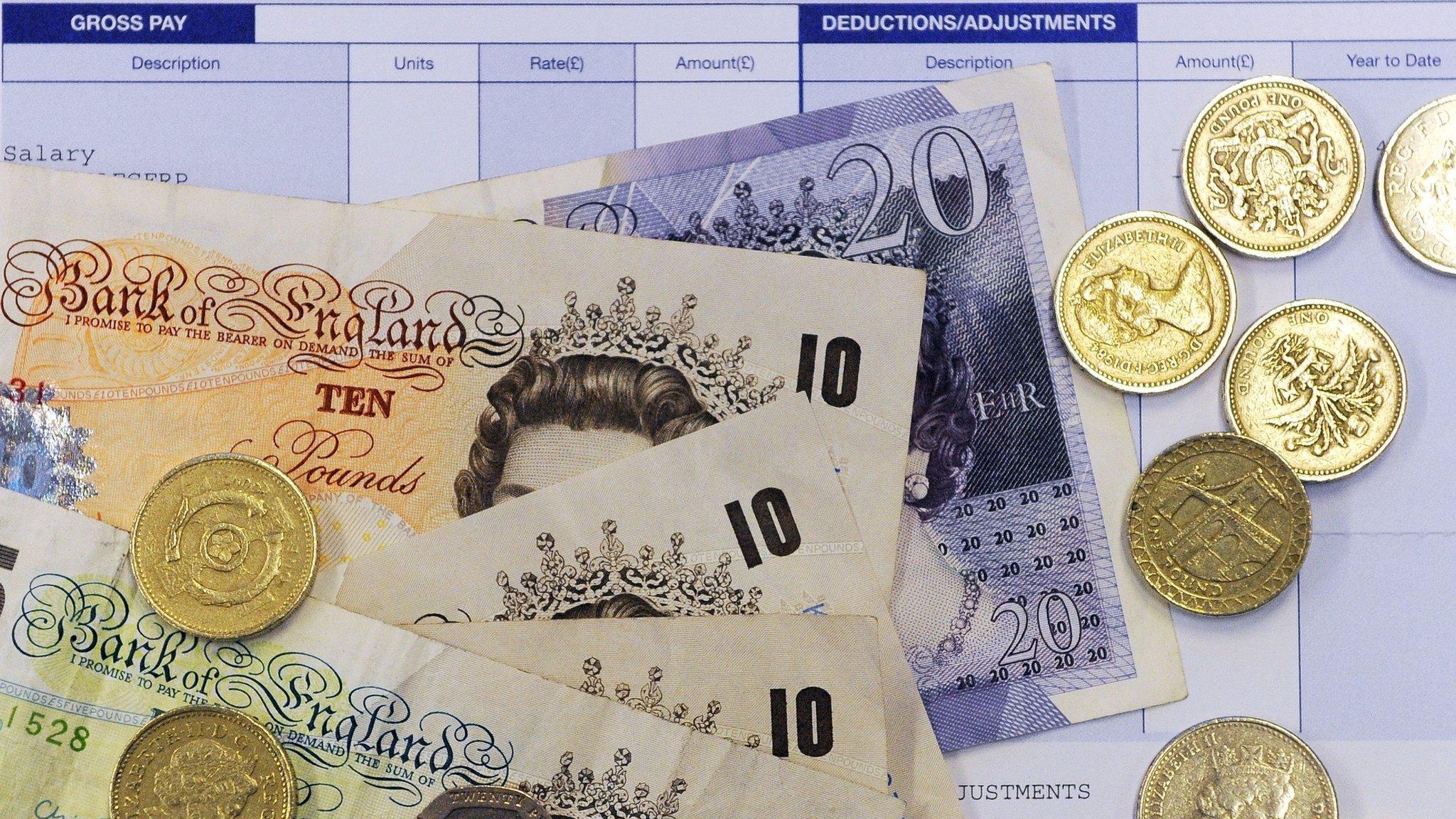TUC calls for curbs to 'stratospheric' executive pay
- Published
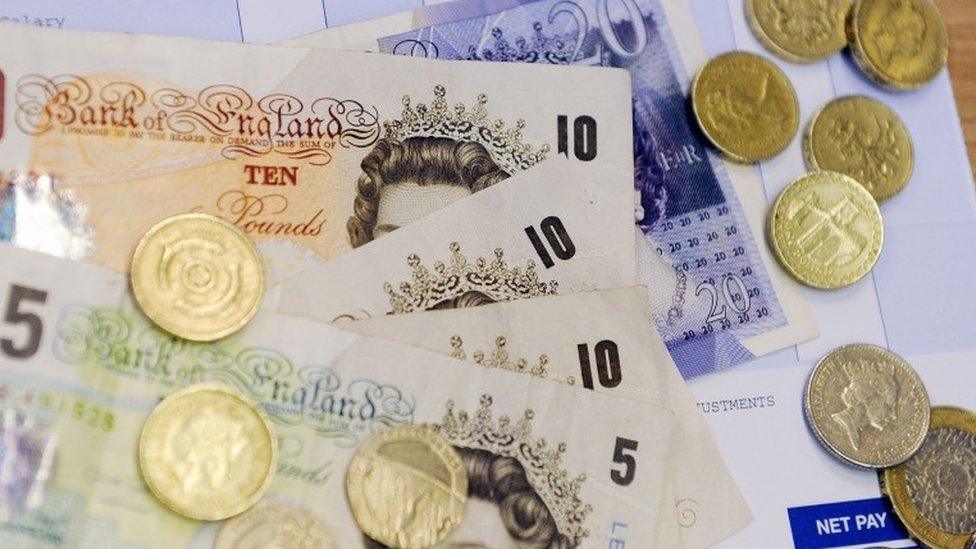
The pay of directors' at FTSE 100 firms has reached "stratospheric" levels, according to a trade union body.
The TUC said its research showed top executives receive a year's worth of the minimum wage in just one day.
It said the average FTSE 100 boss was paid 123 times the average full-time salary, and called for "reality in boardrooms".
A spokesman for Prime Minister Theresa May said she had highlighted action was needed on executive pay.
'Not sustainable'
The TUC research indicated the median pay award, discounting pensions, of a major FTSE 100 director soared by 47% in the five years to 2015, to £3.4m.
That compares with what the union body says was a 7% increase for average wages during the same time frame.
It took Sir Martin Sorrell of advertising giant WPP, the UK's highest paid chief executive, less than 45 minutes to earn what an average worker receives in a year, the TUC added.
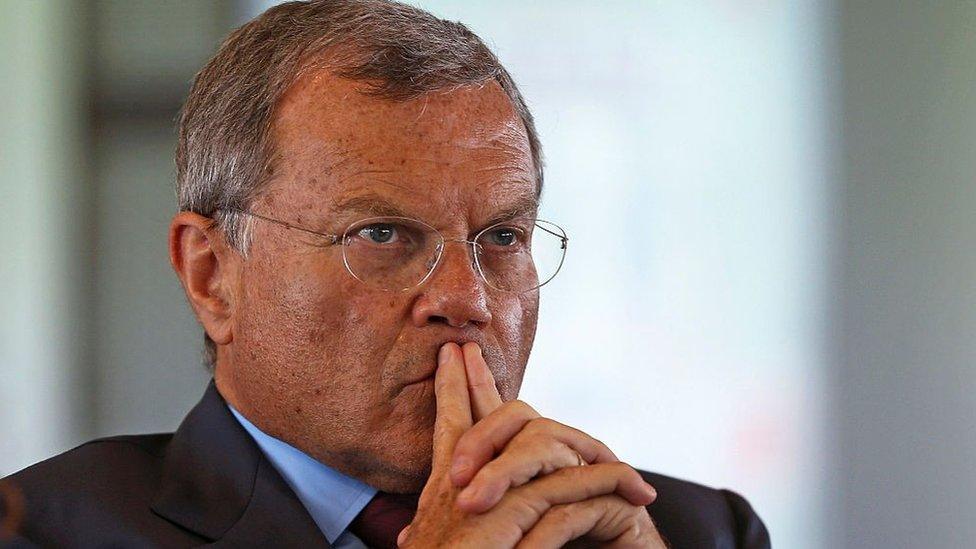
The TUC has highlighted the pay of Sir Martin Sorrell of WPP
"We're seeing a growing disconnect between Britain's boardrooms and shop floors when it comes to pay," the TUC's Deputy General Secretary, Paul Nowak, told the BBC.
Speaking ahead of the TUC annual conference in Brighton he added: "Over the last five years, Britain's bosses have seen their pay rise by nearly 50%.
"And at the same time, ordinary working people have seen real terms pay freezes, and we think that's unfair, it's not right, and it's not sustainable in the long term for the health of the economy."
Meanwhile, the TUC's general secretary Frances O'Grady, called on the prime minister to "deliver on her promise to put workers on company boards".
She added: "This would inject a much-needed dose of reality into boardrooms and help put the brakes on the multimillion pay packages that have damaged the reputation of corporate Britain."
'Greater fairness'
As well as promising to put workers on boards, Theresa May has proposed making shareholder votes on executive pay binding, rather than advisory.
The prime minister has also said she wants more transparency about bonus targets and for companies to reveal the ratio between chief executive pay and that of its average worker.
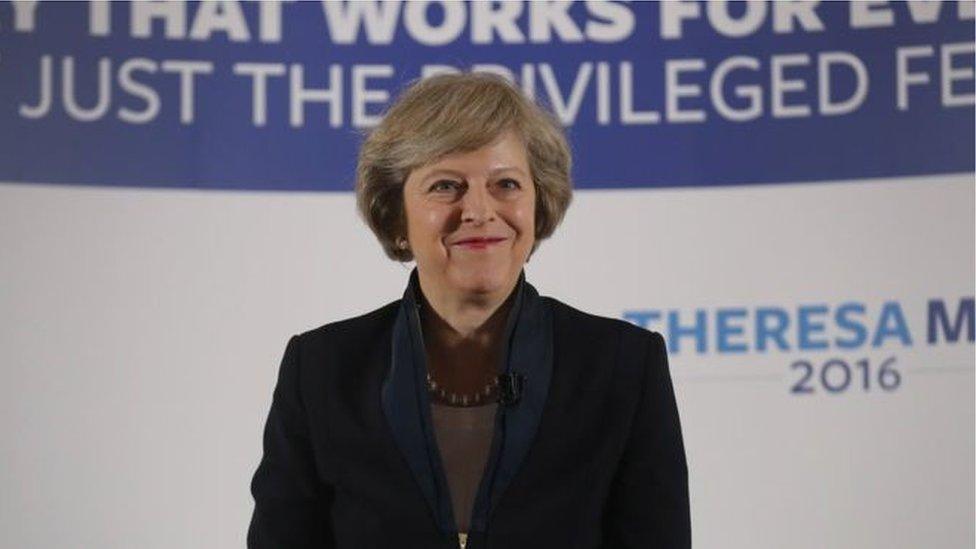
Theresa May has made a number of promises on worker and executive pay
In a speech to the G20 group of major economic nations last week, she said: "To restore greater fairness, we will bring forward a consultation this autumn on measures to tackle corporate irresponsibility, cracking down on excessive corporate pay and poor corporate governance, and giving employees and customers representation on company boards."
Professor Andre Spicer, from the Cass Business School which is part of City, University of London, says some firms are already coming under pressure to curb high managers' pay.
He told the BBC: "We're beginning to see disquiet amongst investors at the moment so there's been pushback amongst big executive pay deals at places like Deutsche Bank, Burberry and a number of organisations.
"So investors are beginning to become fed up with this. It's likely that we're beginning to see questioning of this widespread practice, that CEOs need to be paid a lot to perform well."
- Published8 September 2016
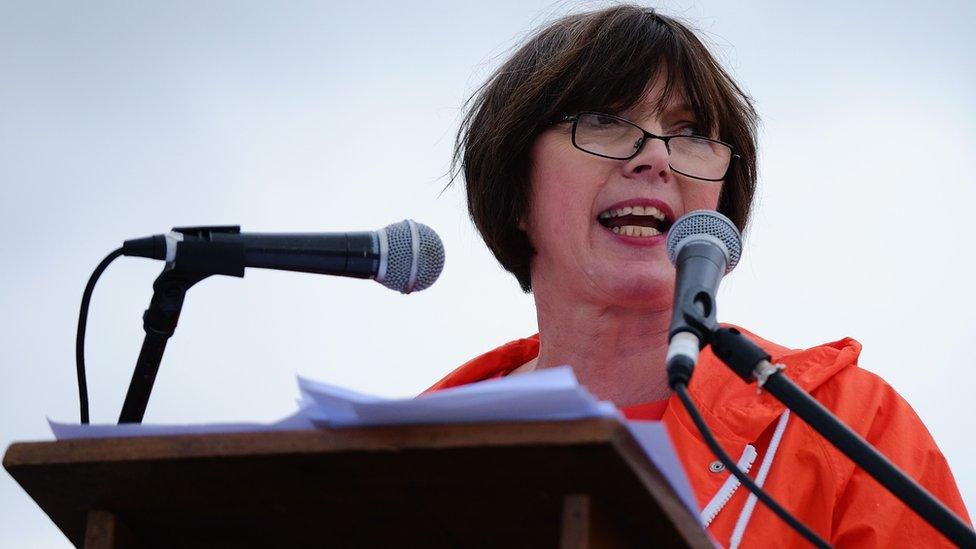
- Published11 July 2016
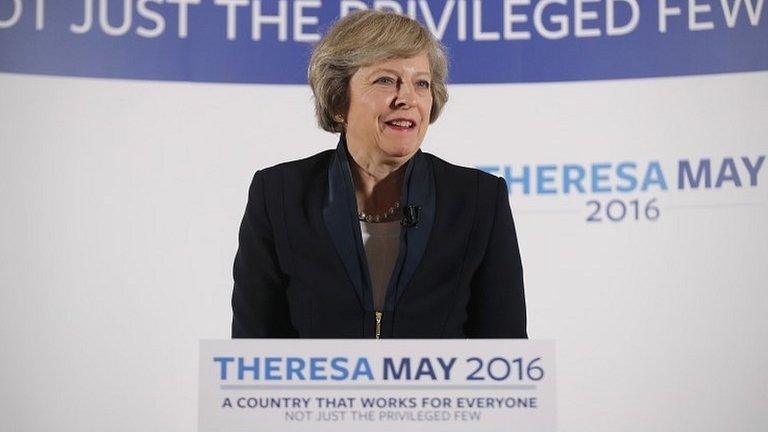
- Published1 September 2016
